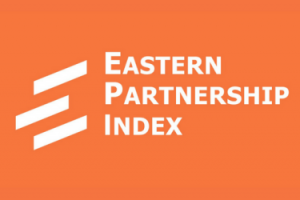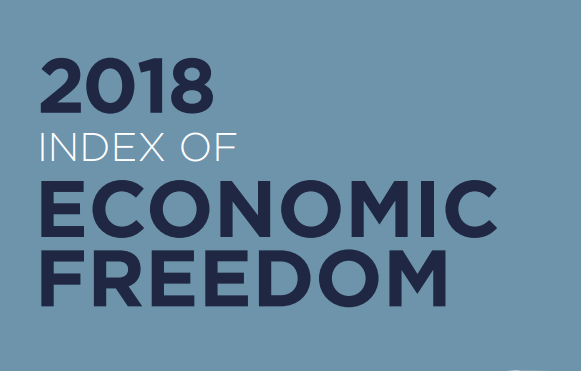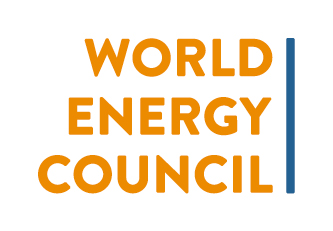The Index of Economic Freedom is an annual index and ranking created by The Heritage Foundation and The Wall Street Journal in 1995 to measure the degree of economic freedom in the world’s nations.
The creators of the index took an approach similar to Adam Smith’s in The Wealth of Nations, that “basic institutions that protect the liberty of individuals to pursue their own economic interests result in greater prosperity for the larger society”.
Considerable diversification of Armenia’s economic base has increased economic dynamism, and a decade of strong economic growth has reduced poverty and unemployment rates. Broad simplification of business procedures has facilitated regulatory efficiency. After years of expansionary fiscal policies, efforts have been made to limit the cost of government through more prudent management of public finance. Armenia performs relatively well in many categories of economic freedom, but more reforms are needed to enhance judicial independence and government transparency. Despite progress in tackling corruption, particularly in the tax and customs administrations, close relationships within political and business circles raise concerns about cronyism and undue influence.
Openness to global trade and investment, supported by some improvements in regulatory efficiency, has aided Azerbaijan’s transition to a more market-based economic system. Continued transformation and restructuring are needed to capitalize on the well-educated labor force and broaden the production base. Economic growth has been driven mainly by development of the energy sector. Challenges to diversification and sustainable growth remain substantial. Deeper systemic reforms are critically needed to advance and institutionalize economic freedom more firmly. Despite some progress, property rights are weak, and corruption remains widespread. State involvement in banking is still excessive, and lingering financial instability adds to uncertainty.
Belarus has achieved minor success in deregulation, but more liberal economic policies have not been a priority. Pervasive state involvement and control hamper the economy. Restructuring of the economic system has been very slow, and the small private sector is marginalized. Undercut by domestic structural weaknesses, the economy has little resilience against external shocks. Corruption remains widespread, and the ineffective judiciary and time-consuming bureaucracy undermine the enforcement of property rights. Government interference with the private sector holds monetary freedom, investment freedom, and financial freedom far below average levels. Public debt has risen, partly due to increasing losses in the state-owned enterprises.
Estonia’s economy continues to benefit from government policies that sustain a high level of economic freedom. The rule of law remains strongly buttressed and enforced by an independent and efficient judicial system. A simplified tax system with flat rates and low indirect taxation, openness to foreign investment, and a liberal trade regime have supported the resilient and well-functioning economy. Prudent and sound management of public finance has been notable. In particular, revitalized efforts to move even further toward limited government and ensure long-term fiscal sustainability have helped to sustain economic vitality. Fiscal adjustments have brought down budget deficits and kept levels of public debt among the lowest in the world.
Georgia’s government has maintained strong momentum in liberalizing economic activity while taking steps to restore fiscal discipline. Public debt and budget deficits remain under control. Open-market policies, supported by competitively low tax rates and regulatory efficiency, have facilitated flows of trade and investment. Large-scale privatization has advanced, and anticorruption efforts have yielded some notable results. With monetary stability and the overall soundness of fiscal health relatively well maintained, Georgia has enjoyed macroeconomic resilience. Nonetheless, deeper and more rapid institutional reforms to enhance judicial independence and effectiveness remain critical to ensuring further dynamic and lasting economic development.
Kazakhstan’s economy has benefited substantially from increased openness and flexibility over the past decade. Although the state continues to maintain its ownership in key enterprises, particularly in the energy sector, the economy is mostly in private hands, and more privatization is being sought. Beneficial structural reforms have included bank privatization, implementation of competitive flat tax rates, and modernization of the trade regime. Deeper institutional reforms to reduce barriers to investment and increase the efficiency of the judiciary are critical to further success. Despite measures to expand the non-energy sector, the overall regulatory framework needs to be more streamlined to enhance competitiveness.
Kyrgyzstan
The Kyrgyz Republic is one of Central Asia’s poorest countries and is sharply divided along ethnic lines. Despite implementation of some reforms, overall improvement in the entrepreneurial environment has been slow and uneven. Political turmoil has contributed to policy volatility and uncertainty, hampering economic development. Political rivalries and powerful vested interests have held back implementation of deeper structural reforms. With remnants of the former Communist system evident in many areas, the economy lacks the institutional foundations necessary for the advancement of economic freedom. Weak rule of law fosters pervasive corruption and ownership insecurity, undermining private-sector investment and business growth.
The increasing dynamism of Latvia’s economy has been facilitated by openness to global trade and investment. Supported by efficient business regulations that promote entrepreneurial activity, the overall commercial environment has become conducive to business creation and risk-taking. Fiscal consolidation in recent years has kept government spending under control and ensured macroeconomic stability. Continued institutional reform to enhance transparency will be indispensable to ensuring the emergence of a more profitable private sector. Poor governance and inefficiency in state-owned enterprises remain problems. Corruption increases the overall cost of doing business and undermines government integrity and judicial effectiveness.
Despite global and regional challenges, Lithuania’s economy has demonstrated considerable resilience. Efforts to crack down on corruption and enhance fiscal soundness by revitalizing the commitment to limited government have borne fruit. Budgetary consolidation has kept government spending under control and has enhanced macroeconomic stability. A new labor code scheduled to come into force in January 2017 should bring greater flexibility to Lithuania’s labor market. Notable features of the law include new types of contracts, an increase in the legally permitted number of working hours, and reduced statutory notice periods and severance payments in cases of dismissal. Lithuania’s relatively sound legal framework sustains judicial effectiveness and government integrity.
Moldova has gradually recovered from a sharp economic slowdown over the past three years, with growth driven largely by remittance-based consumption and modest credit expansion. Some new momentum has been generated for improving the business environment and further liberalizing the trade regime. However, the transition to a more stable market-oriented economy remains fragile. The government’s overall commitment to enhancing the entrepreneurial climate and advancing economic freedom has been uneven. Despite several privatizations, the public sector still plays a dominant role in the economy. The foundations of economic freedom are not firmly institutionalized, and the judiciary remains vulnerable to political interference and corruption.
Tajikistan’s many ongoing challenges include rebuilding infrastructure, improving the entrepreneurial environment, and attracting dynamic investment. Progress on reforms to foster sounder macroeconomic management and improvement of the business climate has been only marginal. The potential for growth is high, but government interference has left the economy vulnerable in a repressive political environment.
Despite some progress in privatizing small and medium-size public enterprises, private-sector development has been slow. Remittances continue to be an important source of external financing. Foreign investment is deterred by burdensome bureaucratic regulations and inconsistent administration. Tajikistan remains one of the world’s most corrupt nations.
The government of Turkmenistan’s heavy involvement in leading economic sectors has dampened private-sector dynamism and led to economic stagnation in nonhydrocarbon sectors. The government restricts foreign investment to a few handpicked partners, and under the state-controlled financial system, access to credit is limited to political favorites. Burdensome and opaque regulatory systems, the nearly complete absence of property rights, pervasive corruption, and rigid labor regulations further limit private-sector activity. While diversification will require the end of state control in several sectors, Turkmenistan’s current competitive tax rates and open trade regime provide a practical base for sustainable long-term growth.
Ukraine’s economy has contracted deeply and remains very fragile. Ongoing disruptions of the country’s productive and export capacities and significant capital outflows have put increasing pressure on the currency and reserves, severely undermining monetary stability. The overall soundness of fiscal policy has deteriorated substantially, and public deficits and debt have increased sharply. The rule of law remains fragile and is further undercut by judicial ineffectiveness. A strong commitment to structural reforms to reduce corruption and open the economy further to Western investment and financial institutions will be crucial in helping to stabilize the economy. The government has launched a comprehensive set of reforms to restore growth, but progress is not yet evident.
Overall economic freedom in Uzbekistan has been held back by corruption and government intervention in various aspects of the economy. While structural reform has been uneven, recent efforts have improved the investment climate to some extent. An online one-stop shop to streamline business regulation, introduced in 2015, has improved the entrepreneurial environment. The government has announced a program to privatize approximately 1,200 state-owned enterprises by the end of 2016. More than 300 were privatized during the first half of the year, but there is doubt regarding the transparency of this process. Uzbekistan also reduced its business corporate tax rate from 9 percent to 7.5 percent in 2016.




